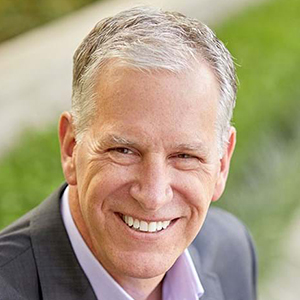
Why I'm Thankful to Be a Mentor
Mentorship and bringing new voices to the table
One of the things I value most about my job is that it requires constant learning. When I draw upon past knowledge to make decisions during new experiences, I’m thankful for my brilliant mentors — guides who helped me navigate my journey. Through the good, the bad and the interesting, these incredible teachers helped me grow, shining a light forward as I leaned into the unknown. My mentors guided me through avenues of communications; their experiences bettered my own. Mentors are often the first people to offer you a seat at the table, allowing your voice to be heard. I’m grateful for their guidance, so I want to share it with the hope that their wisdom inspires you, too:
- Surround yourself with people you trust and enjoy. I learned this from veteran agency leaders Ron Elgin and Dave Syferd of Elgin Syferd/DDB. They both taught the importance of putting people first, surrounding yourself with those who build you up and are ready to see you succeed. I believe this also extends to working with people with complementary skillsets, who you can lean on for support.
- Focus on the work and ignore the noise. One of the best client leaders I’ve worked with, Andy Keehn from Mogelgaard (which later became Publicis), taught me this. What I admired about Andy is he understood that building a bigger table was important, but removing it was just as powerful. Andy believed that the best creative work was achieved by breaking down barriers. Collaboration, to him, meant teams sitting on the floor, bringing everyone — himself included — to the same level. We’re partners in the communications process, and when you give space for creative teams to do their best work for your clients, everything else will fall into place.
- We’re all in this together. When I was at Wunderman, Global COO David Sable taught me many things. Here are two of my favorites: The first is that all relationships are local. It’s important to spend time with your clients and invest in relationships, building a foundation where you can enjoy the good and bad times. David also helped me understand the concept of shared accountability. When we recognize blame shouldn’t fall on one person, the agency or the client, and agree we’re all in this together, we can create stronger work and lasting relationships.
- Lead with purpose in everything you do. WE Communications’ Global CEO and Founder, Melissa Waggener Zorkin, has been a great mentor to me, especially when it comes to purpose. For every action we take in our lives, we must always ask ourselves, “Does this align with who I am and what I believe in?” If it does, our decisions in life become easier because we never stray too far from our core values. I believe that’s something we can all apply inside, and outside, work.
These people, and their positive influence, still impact me today. This is why I want to pay my experience forward. I came to serve on the board of The LAGRANT Foundation (TLF), a nonprofit organization addressing the lack of diversity in the advertising, marketing and public relation fields, thanks to another inspiring person in my life: WE co-founder Pam Edstrom. Through the foundation, I am privileged to mentor Natu Abraham, a student from the University of Washington and a TLF scholar. Although mentoring is about teaching, I’m learning a lot from Natu. As he conducts his job search, he’s sorting through his opportunities to locate an organization where he believes he can do his best work, where he can be respected for his perspective and experience.
In my conversations with Natu, I hear echoes of the advice Pam Edstrom gave to young professionals embarking on their career paths. The advice was less about counsel, and more about a question we should be asking ourselves, “Is this a place, or is it my place?” Natu reminds me that finding places where we feel like we belong, are respected, and where we can grow our careers and perspectives is what turns a job into a vocation. That’s what building bigger tables is all about.
For those who feel they don’t have a mentor, ask someone. Consider the resources you have in your workplace, such as HR, ERG representatives and those you look up to. You’ll be surprised how many good people want to help other good people, like you. If you’re an organization’s leader, how are you positively impacting the next wave of communicators? Success can be defined in many ways, but when the work we do brings people together, instead of leaving them behind, I’m confident that’s one of the best legacies — a gift, really. For those of us who have been at this for a while, our collective call to action must be to inspire the leaders of the future. We need to empower the next generation to build on the progress we’ve made so far — and take it further. We must continue building bigger tables where we all have a seat and a voice, where all experiences can be shared and where everyone can grow.
The latest blogs from WE
Pride is Democracy
Overcoming the Lack of Diversity in Clinical Trials
Is Corporate Purpose Still Relevant in 2024?
